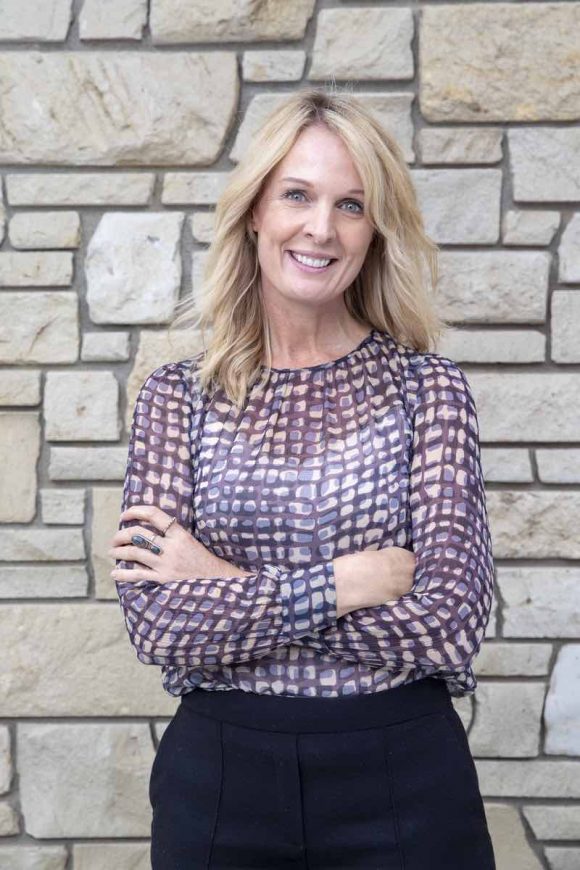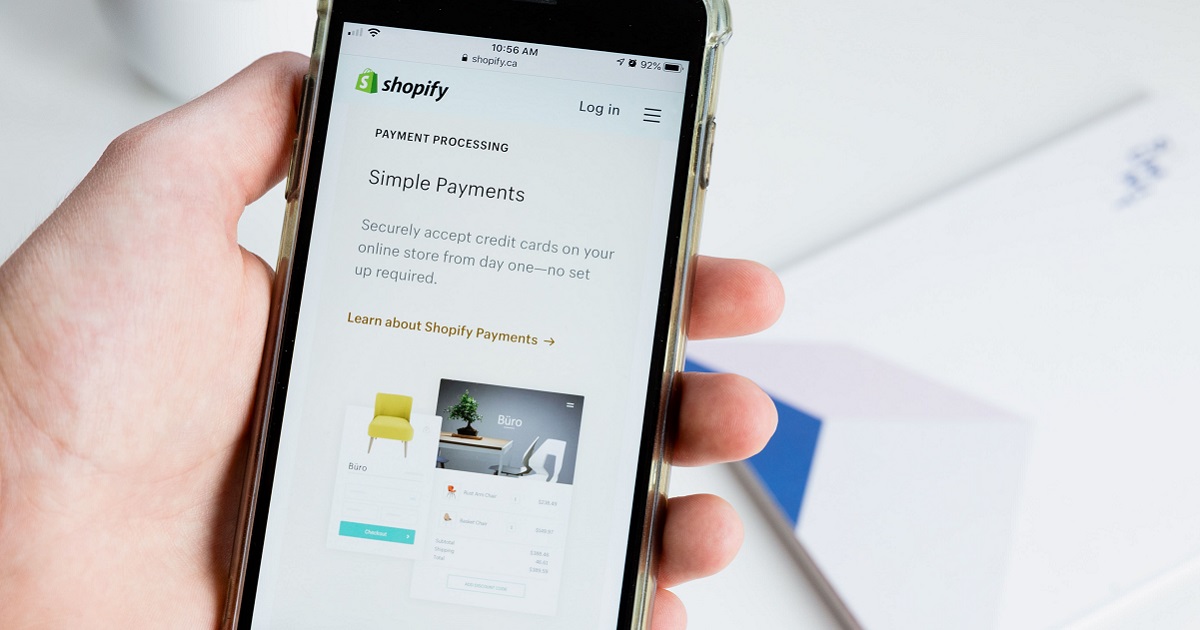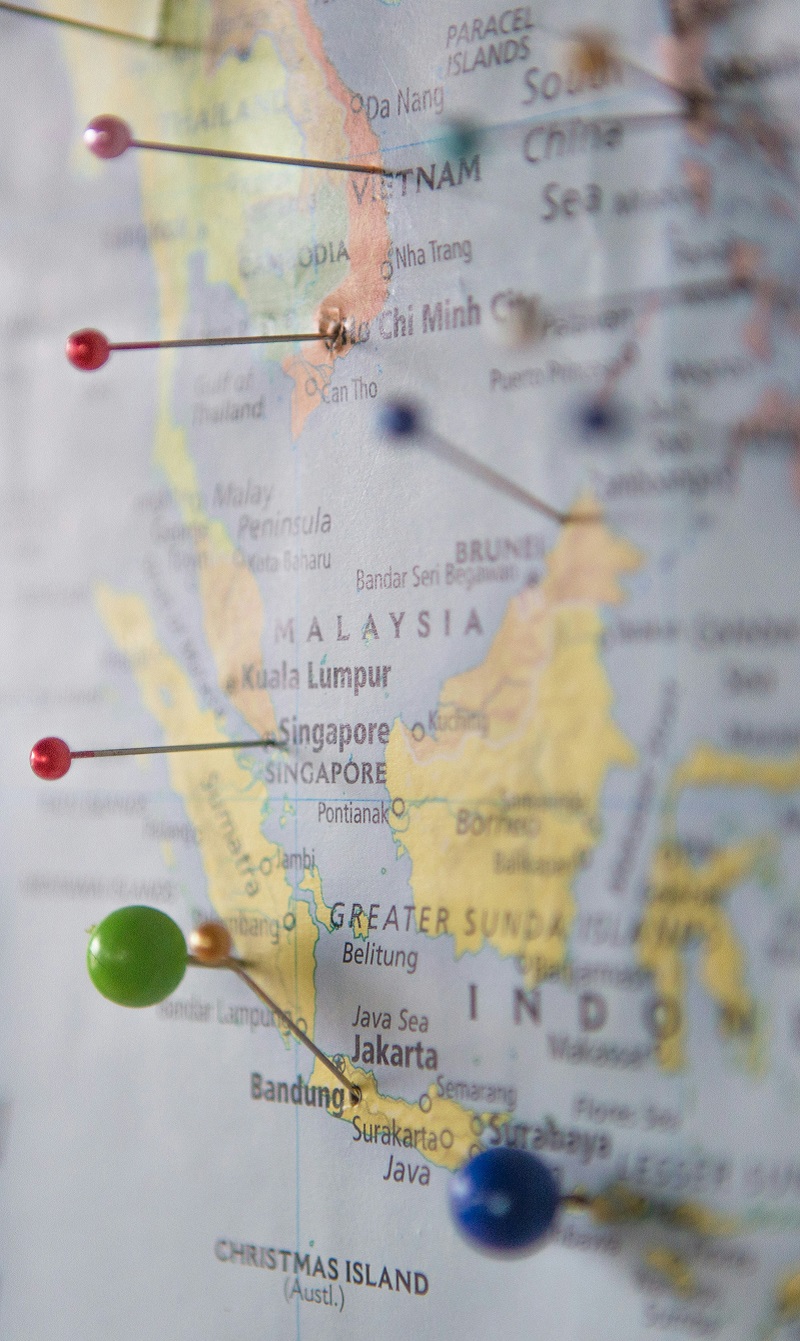Let’s Get Digital
Frances Valintine, founder of Tech Futures Lab in New Zealand and speaker for WIEF thinkTALK 2020, encourages the idea of digitisation as a tonic that actually enables you to think about what you can do better for your business. More on the session in the summary below.
If businesses are operating fully analogue, they’re going to really struggle in the years ahead. Frances Valintine, a leader in innovation and emerging technologies, started the virtual WIEF thinkTALK session on 20 October 2020, by acknowledging how challenging this year has been for everyone. The session focused on Reinforcing Digital Business: Accelerating Growth Amid Turmoil. ‘For some people, it’s particularly difficult as they’re watching competitors being able to respond in a very digital way,’ she says. ‘If you’re still operating in fundamentally a traditional analogue way, it’s definitely much more difficult.’
Frances notes how people are pushing digitisation to its limits. ‘If we take things right to the edge of where technology is today, we already have some phenomenal advances which have become mainstream that could have been deemed science fiction, just a few years ago.’
As examples, Frances cites animal cloning, genetic editing through CRISPR that’s only available because of computer processing power and the ability to turn DNA into zeros and ones, and basically binary code. ‘There are also things like the advances of 3D printing, which means that we can have substrates that now can be anything from hard materials and construction, right through to the ability to print very integral beautiful food, as well as the rise of autonomous vehicles around the world,’ she says.
What’s more, digitisation enables the computer processing power to take people to outer space much more freely. ‘There’s talk now about colonising planets like Mars. May seemed incredibly far-fetched and almost impossible before,’ says Frances. But when you understand when people take what’s available today and the technology plus the processing power, the results are incredible. ‘Actually, when you extrapolate it out into the future, you can understand why these technologies are playing into the hands of those true innovators and tech giants.’
Drivers of Change: Youth
Frances believes this is why we can’t stand still. A key challenge for business owners is to keep up with change. ‘Change continues to speed up and one of the challenges we have is technological advancement. This means that the processing capability of machines is just fast all the time. And therefore, so is the cost.’ Waiting, she reminds, is no longer an affordable luxury.
So, who is driving this change? ‘Tech giants and their technological advances,’ replies Frances. Also, the vast number of the current world population is made up of young people who have only ever known the internet and smartphone as part of life. They’re not only consumers, but they’re forming and working in the tech companies. ‘They’re the innovators and experimenting with the conversion of technology digitisation, while changing an appetite for new technology,’ she adds.
That’s not the only change, says Frances, ‘The other big wave of change is the speed of which technologies accelerating fundamentally because we don’t have any barriers to growth. It took 75 years for the telephone to become mainstream and to reach 50 million users.’ It’s because, fundamentally, you first had to have a telephone before the infrastructure can be built. ‘Once the lines were laid and when we had that technology, other technology followed. But the real change was when we digitised, got the internet and ability to send information very rapidly.’
Advance happened very quickly then with a huge surge of companies, and thus, changing the world rapidly. ‘The most dramatic event was actually the introduction of the smartphone 11 years ago. This afforded us transportation mobility, multiple payment systems, the internet, entertainment such as augmented reality as well as the global phenomenon that is Pokemon Go, and recently, Tik Tok,’ Frances recalls.

Where and How
Think about where do we get information from and how to never log off. Dedicate time each day for accurate, authentic information from reliable sources and understand what impact it has on your business.
Procure your customer base: digitise. ‘So that’ll be social media and digital marketing. You might be creating an email database for a website. Hopefully, having an e-commerce website so you can transact through gathering information by selling products or services,’ says Frances. ‘Bring together live information that you can have a dashboard view of what your business is doing at any one time. What you’ll see is very much an end to end seamless integration, all the way back to the customer through logistics and actually delivery.’
Platforms to market digitally: Facebook and Instagram provide channels to market and reach, especially to student communities where you really want to be. Live broadcasts feature highly on these two platforms. How do they work for us in terms of a channel to market? They could be catalysts to reach new customers globally and be partners through their incredible global data warehousing. ‘[These platforms] have the largest population. If they were a country, they’d be the largest in the world,’ says Frances. ‘Utilise them to your advantage.’
Mobile first: move away from a paper-based world. Having all your administrative stuff on a cloud enables easy sharing. Have a highly interactive website. Majority of people are viewing content on the mobile phone.
Human capital: question how many systems and processes have been digitised, what does your customer relationship management system look like and what integrations such as online providers. Think about how to leverage technology to make your business more intangible, valuable and scalable through that process. ‘Also, don’t forget returns to shareholders over profit and purpose. Understand that actually the heart of every recovery is people,’ reminds Frances. ‘The recovery of people is going to mean making sure we take them on this journey and how they can contribute in this ever increasingly digital world.’
Embracing Digital, a New Norm
‘Most of you use online banking. Many economies now are almost cashless. We’re also seeing the rise of the mobile phone as the first point of contact. AI will power 95 per cent of all customer interactions within five to 10 years. Blockchain, which I think we should be very mindful of, is that it’s also having a significant raise of interest – in fact, 77 per cent of current financial service firms. So, expect it to be part of the process,’ says Frances. ‘Most people still type in their search. So, when I talk in places like the United States, people look strangely at me because why would you talk to your phone to search or to ask for it to drive the functions such as make a phone call or send a text message. There’s missed opportunity for many – how people are connecting with data through voice.’
Frances stresses how now is the chance to innovate and really thinking about research as well as development so your business develops and grows over the next few years. It’s time to think about how to deviate from what we were doing because the old way no longer is fit for purpose. ‘Move away from the idea of averages. Start with a blank sheet of paper and think about your point of difference. Or, in many cases, what’s your unfair advantage. What do you have that others don’t have such as materials source, geographic, the team that you have or an internet protocol (IP) that you hold. Really utilise them as you move increasingly into the digital world because within five years all businesses will be 100 per cent digital.’
The past, observes Frances, is a comfortable place. She concludes, ‘It’s because, often, that’s where our expertise lies. We have to get comfortable with the idea that we need to move as technology moves and it’s not okay to not have an open mind to change because that’ll take you into obsolescence.’
Frances Answers Some Questions
How do we narrow the digital divide?
The divide isn’t always what people think, because majority of the people own a smartphone. Understand that the divide often happens among those who haven’t understood how powerful digital devices are and you can run a business from a smartphone. So, we have two issues: those who don’t have access to the device, which is quite a small market, and those who have chosen to remain ignorant of what it can do.
What are some of the successful pivot strategies from New Zealand that are relevant to the digital business today?
New Zealand only has five million people and has a lot of unfair advantages such as vast amount of land, which is great for production of food. But we weren’t early adopters of digitisation. We can’t sell domestically because the market is too small. So, we always think digital first and about global partners. We think about Amazon bringing all this competitive material or products into the country and reverse channel. It enables us to put our products on those channels such as Alibaba. Digital helped New Zealand business owners to achieve global reach.
Would government policies have a role in escalating and elevating digital business?
Here, the best example of encouraging government policies, is Estonia. They’ve adopted digital for many years. It’s important that the government understands their role in opening compliance and the market so that we can think about shared data sheet platforms and data sovereignty, responsibilities that governments set the tone but aren’t the gatekeepers. It’s important that it grows organically to keep open source, open data and open communities together. Increasingly, people are operating outside a single government because they’re distributing globally across multiple jurisdictions. It’s about governments understanding the role they play in assisting businesses to thrive in this digital world.
Should staff who manage digital business transactions be tech savvy?
Yes, I don’t think you need to be tech savvy but you need to know the questions to ask. So, it’s an element of confidence of what you’re asking to do and understand what your business needs. But there are services online such as search engine optimisation or for you to create a digital channel or website. It’s not about doing it yourself. When it comes to digital marketing, for instance, it’s difficult to find the right people for it. So, look for a group of people who can learn with you and support you.
What are the digital transformation trends in the next five years or post pandemic?
The first one is over sharing on social media – where everybody is always beautiful with a perfect lifestyle. I think we’re going to become more jaded toward that and people will become more sceptical. The fake news channel and the influence of algorithms in a fake content. We’ll start to really understand what is good content and that we hold the rights to our privacy now. So, I think they’ll increasingly question who owns that data and who do they want to give that information to.
What digital solutions can be done for the tourism industry to accelerate its growth during this turmoil?
Tourism is one of New Zealand’s top three industries. There’s been a huge impact due to the pandemic. It’s time for the tourism industry to grieve and take stock of what they want to be. Move away from fast fashion or fast food, think more on health, the environment and sustainability. A new generation who aren’t looking for it fast and distinguishing those who have appeared to be high value, wanting a much more authentic experience. And I think we’re going to see that in tourism. It’s not about selling a virtual reality tour of famous sites. Success of the likes of Airbnb stems from recognising that not everyone wants to stay in hotels. Now, you can go and eat at someone’s home, go to markets where they showcase how they create manufactured goods. Go directly to customers by engaging them with a story. Become storytellers about what you’re doing.
What are your views on big data and how it drives technology platforms?
I think it depends entirely on who owns that data. A great example is, you can use all the medical knowledge in the world to help people have better access to information so they can understand their own health without the need for expensive medical intervention. That’s a great outcome of big data. It also democratises the legal system so that people get a fair representation that may be through data or AI. In education, we can now access free online courses in almost any subject from the best universities in the world. But big data in the hands of large commercial entities are using it to sell you more things. So, it comes back to who owns it. One of the interesting things about New Zealand is that we’ve built a reputation around trust. Particularly over the last couple of months, and people are interested in this idea of trusted nations. This leads back to how you use data, what’s the end goal and who wins. If there’s a winner, let’s make sure it’s one that ensures everybody benefits.
Main photo by Roberto Cortese on Unsplash





